Baking the perfect cake is a delicate art, and choosing the right type of flour can make all the difference. Each type of flour brings its own unique qualities to the mix, influencing texture, flavor, and rise. Let’s explore the world of flour, and discover how each variety can transform your cake-baking experience.
All-Purpose Flour
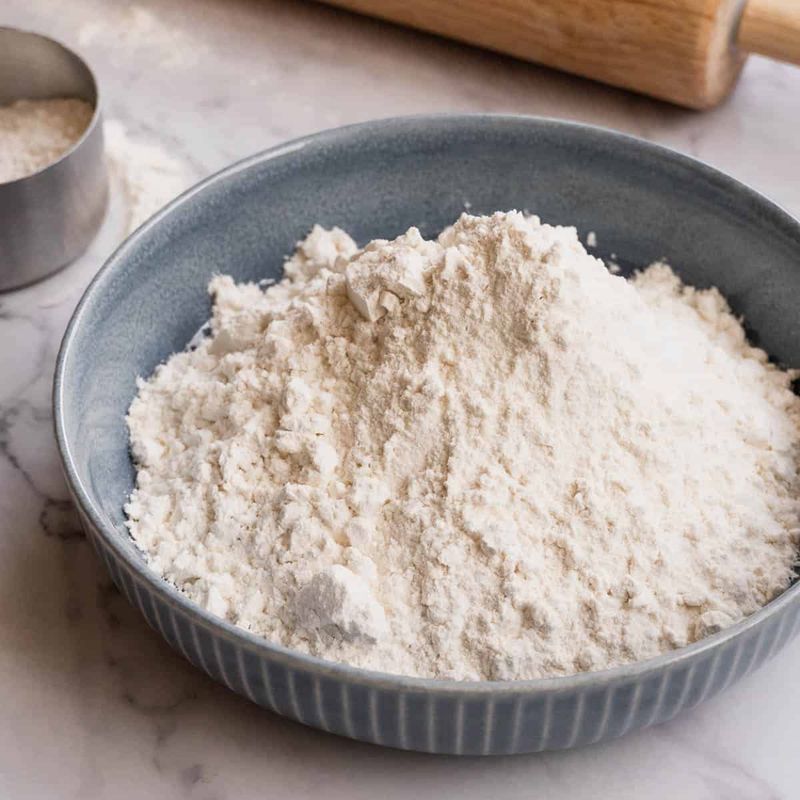
All-purpose flour is the kitchen’s versatile staple, suitable for almost any baking project. This flour’s balanced protein content, usually around 10-12%, makes it a jack-of-all-trades. It’s perfect for cakes needing a light, airy texture, yet strong enough for more structured creations.
Many bakers rely on this flour for its consistency, providing a reliable base for experimentation. Whether crafting a classic pound cake or a simple sponge, all-purpose flour’s adaptability makes it a go-to choice in the pantry.
Cake Flour
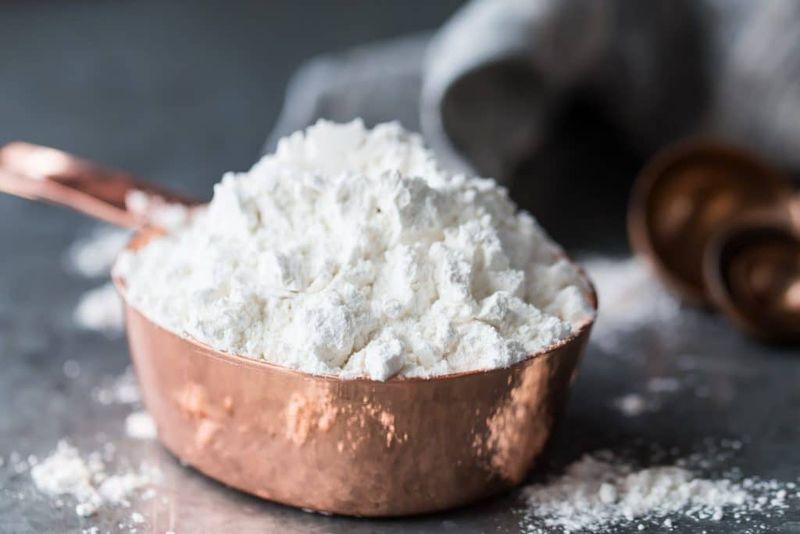
Cake flour is the secret to creating cakes with a tender crumb and delicate structure. With a lower protein content of around 7-8%, it results in a softer, finer texture. This makes it ideal for chiffon and angel food cakes that require a delicate rise.
The ultra-fine grind ensures smooth mixing, preventing lumps and clumps. Its ability to hold moisture without heaviness is cherished by pastry chefs aiming for lightness. If fluffy cakes are your goal, cake flour is your best friend.
Pastry Flour
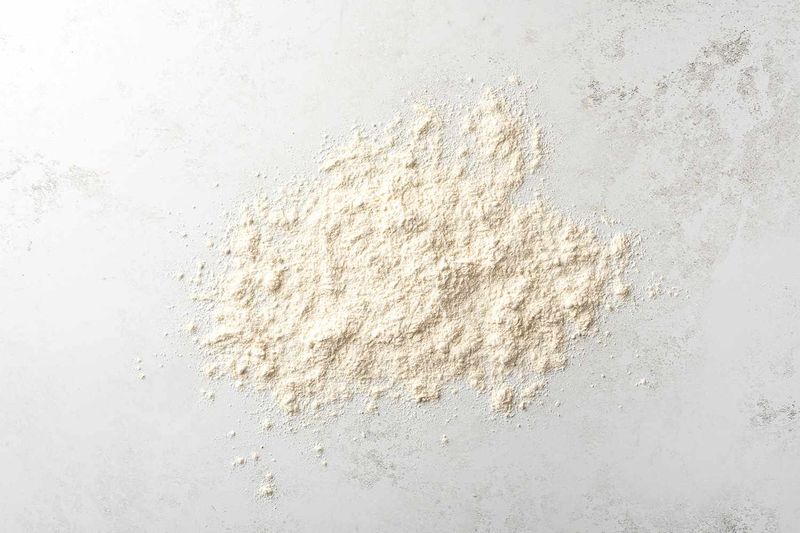
Pastry flour strikes a delightful balance between cake and all-purpose flour. With a medium protein level of about 8-9%, it provides the perfect tenderness for pastries and tarts. This flour is often chosen for its ability to yield a soft and flaky texture in crusts.
Its subtle elasticity ensures that your delicate baked goods don’t become tough or chewy. It’s a baker’s dream when producing light, buttery pastries that melt in your mouth. Use pastry flour for those special occasions requiring a touch of elegance.
Self-Rising Flour
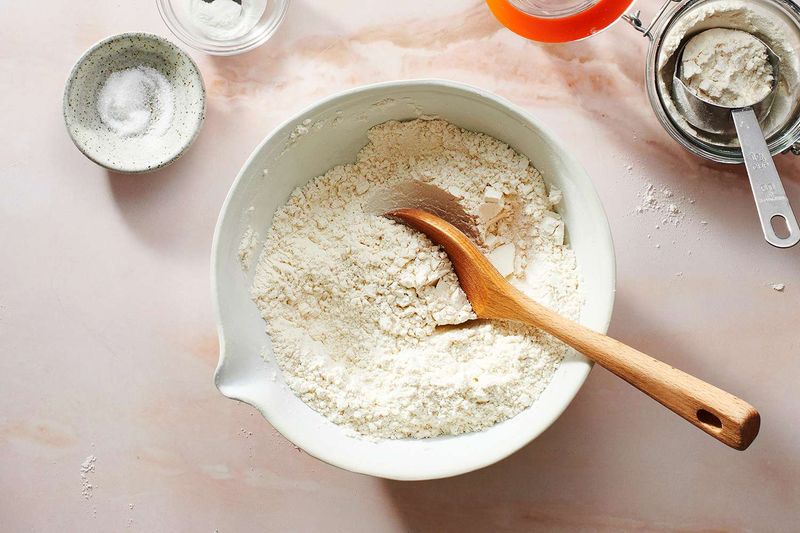
Self-rising flour is a convenient blend of all-purpose flour, baking powder, and salt, simplifying your baking process. This pre-mixed formula ensures consistent results, especially in recipes requiring a little lift.
Ideal for beginners, it takes the guesswork out of leavening. However, be mindful: its pre-added ingredients mean it’s not suitable for all recipes. Keep it on hand for quick, no-fuss cakes and enjoy the ease of this ready-to-use flour.
Whole Wheat Flour
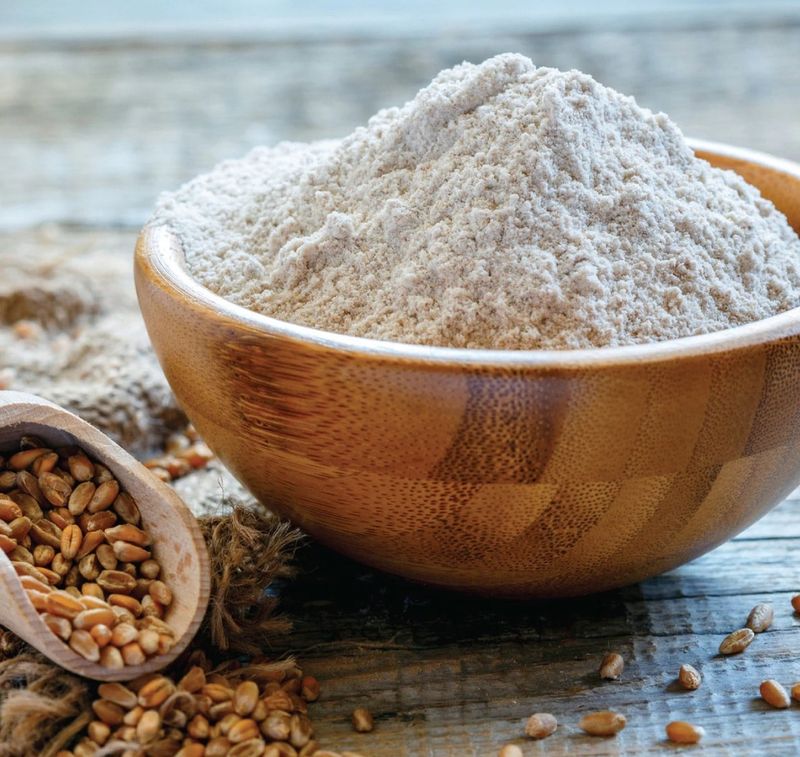
If you’re aiming for a cake with robust flavor, whole wheat flour offers a hearty, nutty character. This flour retains the bran and germ, providing more fiber and nutrients than its refined counterparts. It lends a denser texture to baked goods, perfect for rustic cakes and loaves.
For best results, mix it with all-purpose flour to maintain a balanced crumb and prevent heaviness. Whole wheat flour’s wholesome taste makes it a choice for health-conscious bakers craving depth in their desserts.
Almond Flour
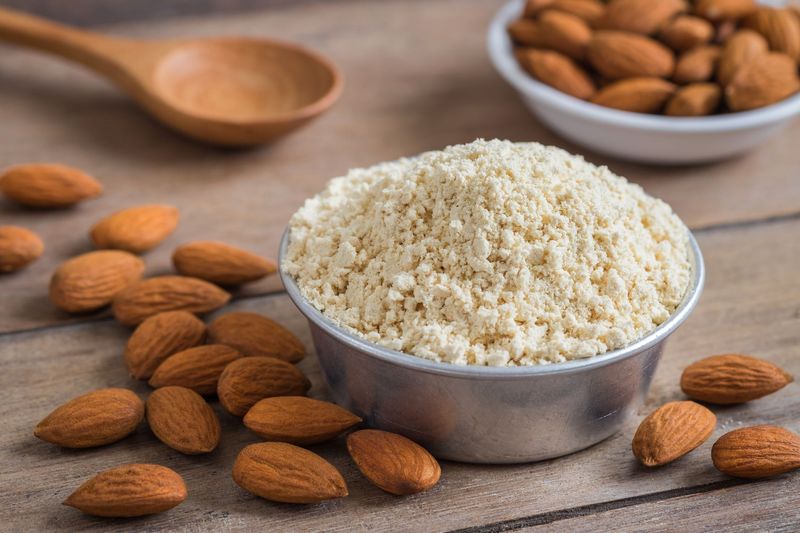
Almond flour, made from finely ground almonds, offers a rich, moist addition to your cakes. Not only is it gluten-free, but it also brings a sweet, nutty flavor that enhances any dessert.
The fat content provides a tender crumb, making it perfect for decadent cakes and tortes. Almond flour is praised for its ability to keep cakes moist for longer periods, a boon for make-ahead desserts. Embrace this flour for a luxurious twist in your baking.
Coconut Flour
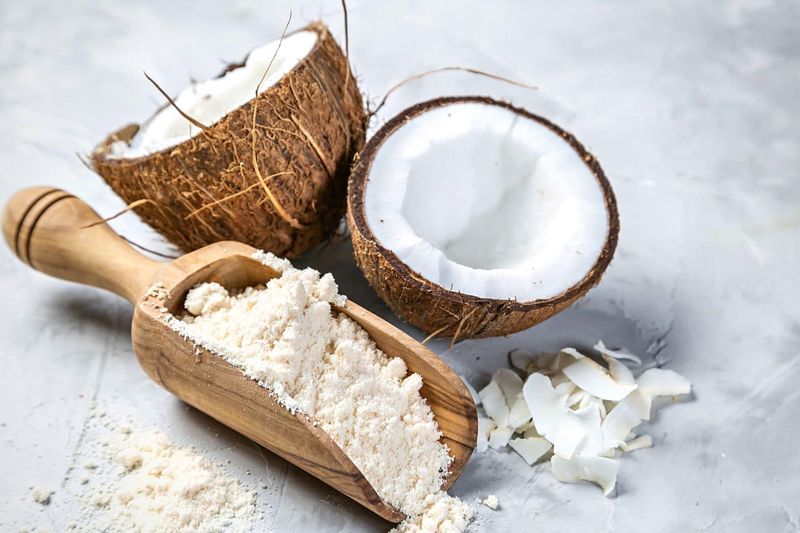
Coconut flour introduces a tropical flair to your cakes, with its unique ability to absorb moisture. Derived from dried coconut meat, this flour is high in fiber and low in carbohydrates, making it a favorite among gluten-free diets.
Its dense nature means it requires more liquid than other flours, often resulting in a moist, dense cake. Perfect for exotic desserts, coconut flour adds a subtle sweetness and aroma that transports you to a tropical paradise.
Gluten-Free All-Purpose Flour
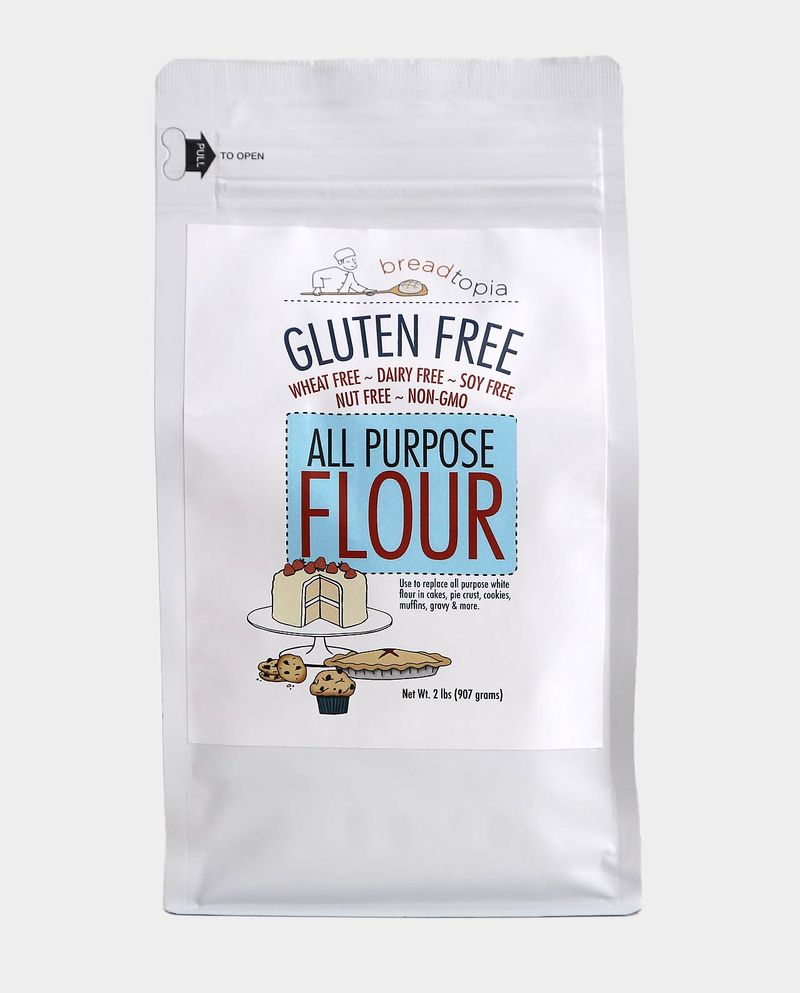
Gluten-free all-purpose flour blends are a boon for those avoiding gluten without sacrificing baked goods’ quality. These mixes often combine rice flour, tapioca flour, and potato starch to mimic the properties of wheat flour.
Ideal for those with dietary restrictions, this flour ensures your cakes remain soft and enjoyable. It offers the flexibility to create a variety of baked treats, making it an indispensable addition to any gluten-free kitchen.
Spelt Flour
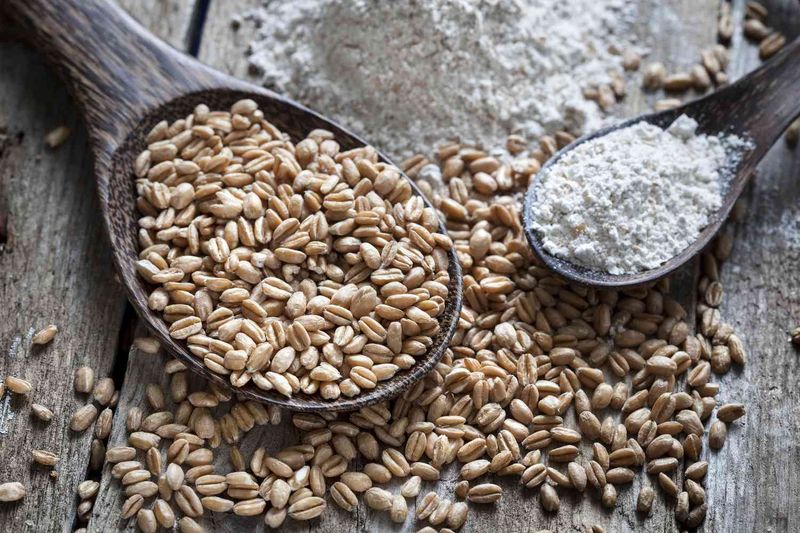
Spelt flour, an ancient grain, provides a deep, earthy flavor to cakes. With a protein content similar to wheat, it offers a unique twist for modern baking enthusiasts. Often praised for its digestibility, spelt flour can be a suitable alternative for those sensitive to common wheat.
Its distinctive taste adds character and complexity, making each cake a memorable experience. Spelt flour’s versatility extends beyond cakes, finding a place in a variety of baked goods that call for a touch of tradition.
Rye Flour
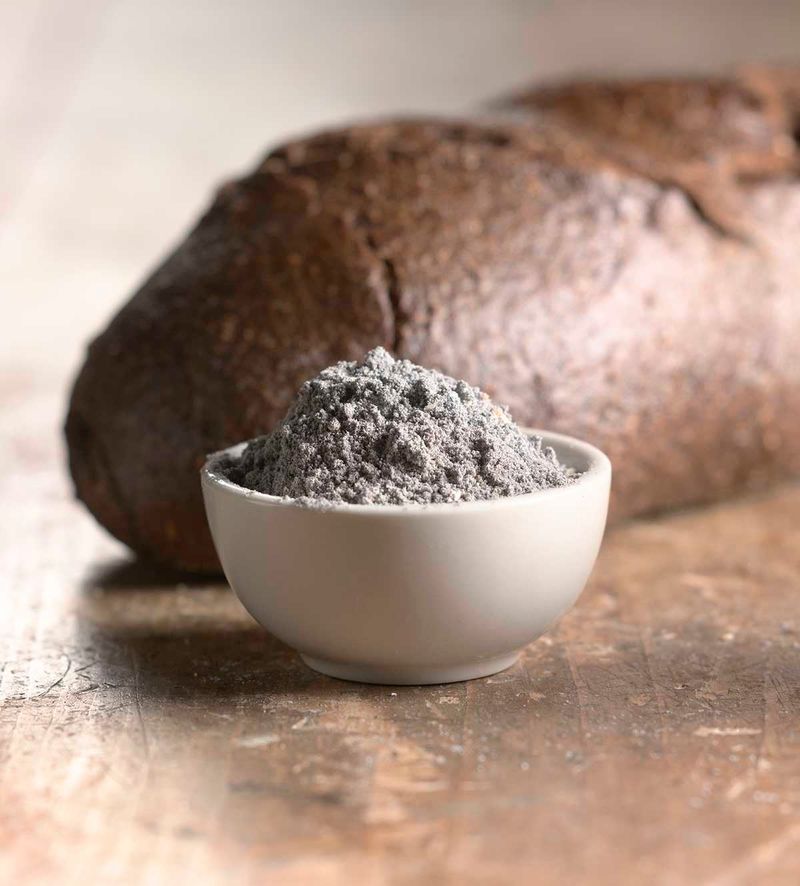
Rye flour, most commonly associated with hearty breads, can surprise with its role in cakes. Its dark, robust flavor offers an intriguing contrast to sweet ingredients, giving cakes an exotic twist.
Rye’s gluten content is lower than wheat, resulting in denser, moist cakes. Paired with spices or chocolate, it brings out deep, complex flavors, perfect for those seeking something out of the ordinary. Experiment with rye flour to elevate your baking repertoire.
Oat Flour
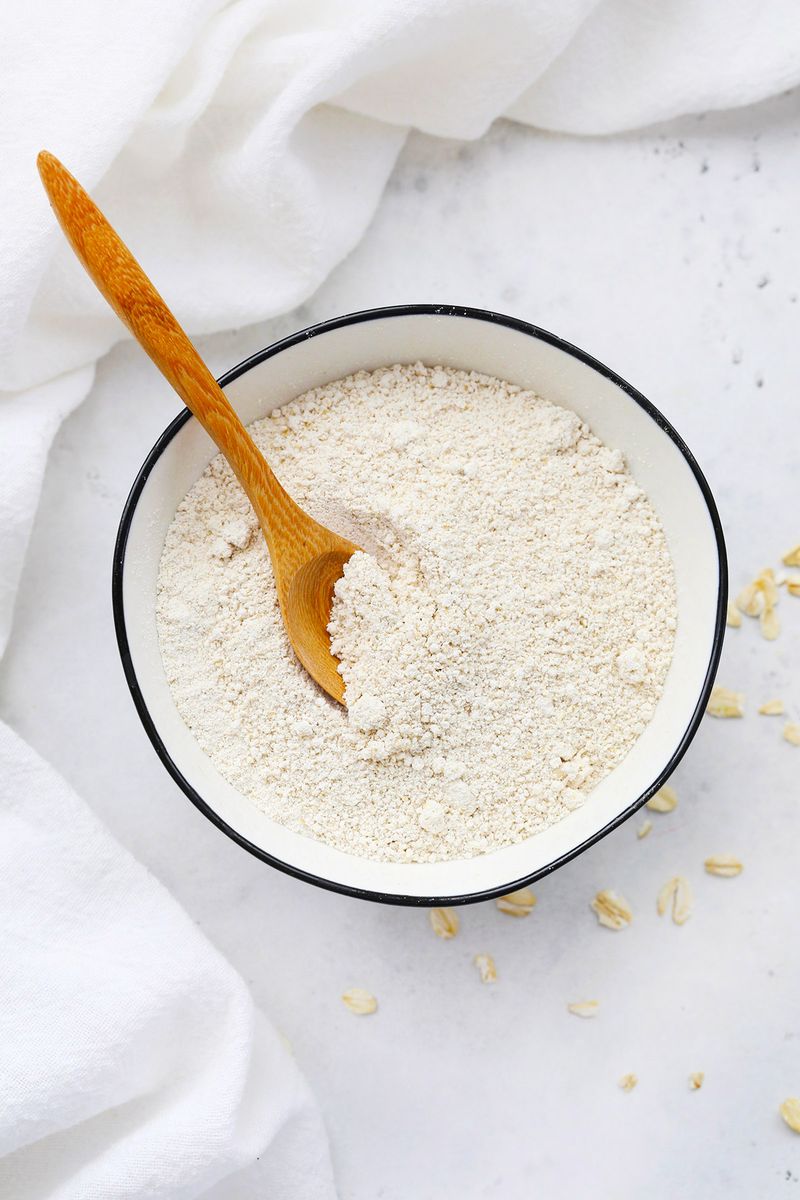
Oat flour’s mild, slightly sweet flavor is a comforting addition to cakes. Made from finely milled oats, it creates a soft, tender crumb while contributing added fiber and nutrients.
This flour shines in recipes where moisture and texture are key, providing a wholesome touch. Combined with other flours, oat flour is ideal for those seeking a flavorful yet nutritious cake. Its versatility extends beyond baking, offering a nutritious boost to everyday recipes.
Quinoa Flour
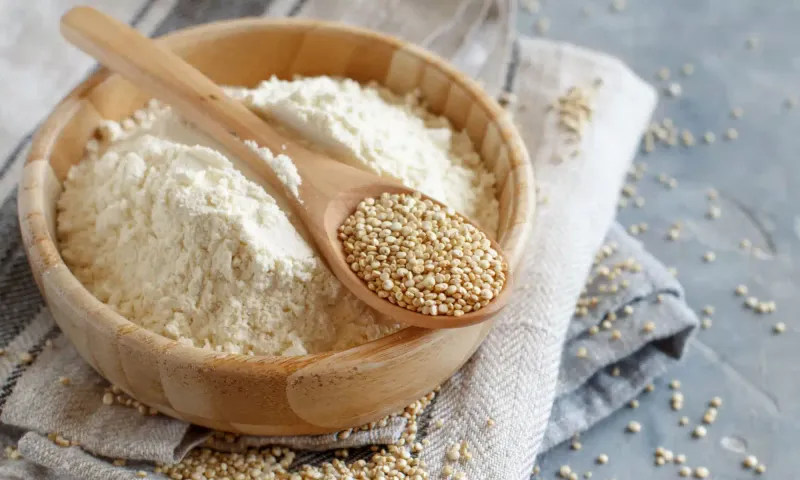
Quinoa flour is a nutritional powerhouse, packed with protein, fiber, and all nine essential amino acids. This flour’s slightly nutty flavor adds depth to cakes, making it a favorite among health-conscious bakers.
Its unique properties contribute to a moist, tender crumb, often used in gluten-free baking. Quinoa flour’s subtle taste complements a variety of cake recipes, offering a healthy twist without compromising on flavor. It’s an adventurous choice for those willing to explore new culinary horizons.
Leave a comment